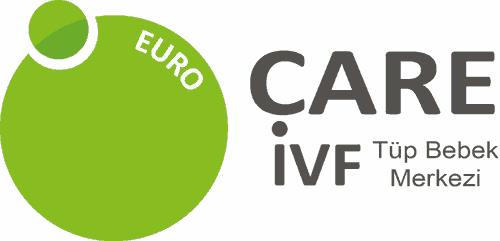
Mini IVF: A Gentler Approach to Fertility Treatment at EuroCARE IVF
At EuroCARE IVF, we’re committed to offering fertility options that meet each patient’s unique needs and preferences. Mini IVF, also known as soft IVF or mild IVF, is a tailored, lower medication solution for those seeking a less intensive but highly successful approach to fertility treatment.
What Exactly is Mini IVF?
Mini IVF is a fertility treatment designed to stimulate the ovaries gently, producing high-quality eggs, but fewer eggs than with standard IVF. This approach is ideal for those looking to avoid the heavy hormone dosages associated with conventional IVF treatments.
How Does Mini IVF Differ from Standard IVF?
Unlike standard IVF, which uses high doses of fertility drugs to maximize egg production, Mini IVF focuses on a milder protocol, utilizing fewer medications and often involving fewer clinic visits. This method is popular with those who prefer a more conservative approach to fertility treatments, as well as patients who:
- Are sensitive to or concerned about high doses of hormones.
- Have a low ovarian reserve or are older in age.
- Want a more budget-friendly IVF option without compromising on care.
- Have PCOS and are also at risk of developing OHSS (Ovarian Hyperstimulation Syndrome)
- Want to preserve their fertility before undergoing cancer treatment
How is Mini IVF Performed?
For the most part, Mini IVF (also known as micro-IVF) is similar to a traditional IVF cycle. As with standard IVF, we’ll perform an egg retrieval, fertilization of the egg and sperm in our onsite laboratory, and an embryo transfer. The key difference is the amount of medication used to stimulate the ovaries to produce eggs. While a standard IVF cycle aims to produce a higher number of eggs for retrieval, Mini IVF uses lower doses of medication to produce only a few eggs.
A Mini IVF procedure includes:
- Consultation and Preparation: A personalized Mini IVF plan is created based on your health and fertility goals.
- Mild Stimulation Protocol: Low-dose medications stimulate the ovaries to produce a select number of quality eggs.
- Egg Retrieval and Fertilization: Once mature, eggs are gently retrieved and fertilized with your partner’s or donor’s sperm.
- Embryo Transfer: After fertilization, a high-quality embryo is selected and transferred to the uterus.
Medications Involved in Mini IVF
In a mini IVF protocol, traditional fertility medications are used, but in smaller doses. These typically include oral medications (like Clomid) or lower doses of injectable hormones, and medications to prepare the uterus for embryo transfer.
During Mini IVF, lower doses of gonadotropins may be used, with the aim of producing only a few eggs (Gonadotropins include medications such as Gonal-F, which is used to stimulate egg growth). In addition to ovarian stimulation drugs, you may need to take a GnRH antagonist (Cetrotide), which prevents ovulation from occurring too early, before the doctor has a chance to retrieve the eggs from your ovaries.
By using lower doses of these medications, Mini IVF is often seen as a gentler and more “friendly IVF” option. For some women, it’s also possible to complete Mini IVF treatment with no ovulation stimulation drugs. This is also known as a ‘natural cycle IVF’. Natural cycle IVF would not be appropriate for patients if there are any problems with ovulation preventing pregnancy, however, it may be an acceptable choice in cases of blocked fallopian tubes and, in some cases, male infertility.
Success Rates of Mini IVF
While success rates for Mini IVF may be slightly lower than traditional IVF due to fewer eggs retrieved, patients with good-quality eggs have seen positive results. At EuroCARE IVF, we see a success rate of about 70% per cycle with our Mini IVF program. In general, traditional IVF success rates in Cyprus vary by the age of the female patient, with the following success rates:
- Under 30 years: 75–80%
- 30–35 years: 65–75%
- 35–40 years: 50–65%
- Over 40 years: 30–50%
Other factors that can affect IVF success include medical conditions, lifestyle choices, and the technical aspects of the procedure. If a woman has low ovarian reserve or is no longer producing good-quality eggs, IVF with donor eggs may be an option.
Pros and Cons of Mini IVF
Mini IVF offers several unique advantages for individuals and couples seeking fertility treatment, including:
- Reduced Medication Use: Minimizes hormone exposure for a gentler experience.
- Lower Costs: Mini IVF is often more cost-effective than conventional IVF.
- High-Quality Eggs: Focuses on quality over quantity, selecting the best eggs for fertilization.
- Less Stress on the Body: Suitable for those sensitive to hormone treatments.
Unlike traditional IVF, Mini IVF uses a lower dose of medication, which reduces costs and minimizes potential side effects. This gentler approach is ideal for women with a lower ovarian reserve, as it focuses on quality rather than quantity of eggs. Additionally, Mini IVF is less invasive and often involves fewer clinic visits, making it a convenient and less stressful option. With success rates comparable to conventional IVF for certain groups, Mini IVF provides an effective, affordable, and patient-friendly pathway to achieving parenthood.
However, as with any fertility treatment, there are some risks associated with Mini IVF, though they are generally lower than with traditional IVF. One potential risk includes ovarian stimulation syndrome, but this is rare in Mini IVF due to the lower medication dosages used.
Why Choose EuroCARE IVF for Mini IVF?
One of the primary benefits of having Mini IVF with EuroCARE is our affordability. Since it requires fewer medications and sometimes fewer clinic visits, Mini IVF costs are generally lower than traditional IVF, plus we offer IVF Packages that bundle your fertility treatments, hotel stay, and transportation all in one convenient, affordable package.
EuroCARE IVF is a trusted provider of gentle fertility solutions, offering the care, expertise, and transparency you need. With our Mini IVF options, we help patients experience a balanced, patient-centered approach that respects their health, financial investment, and family-building goals.
Start Your Journey with EuroCARE IVF Today
Explore the possibilities of Mini IVF in Cyprus today! Our team is ready to guide you through each step with compassion, expertise, and a commitment to helping you achieve your dreams of parenthood.
